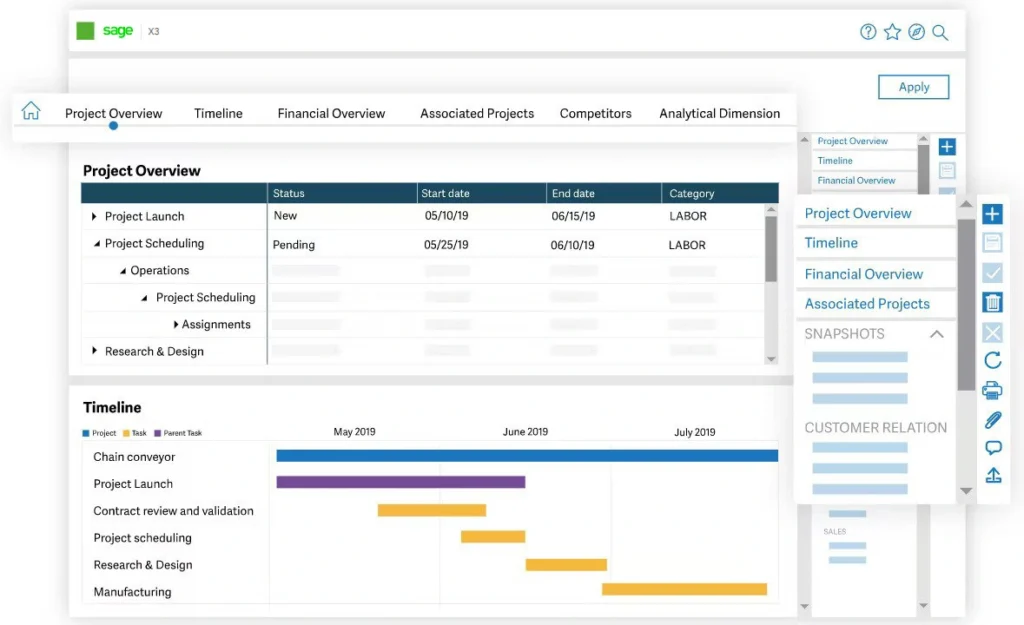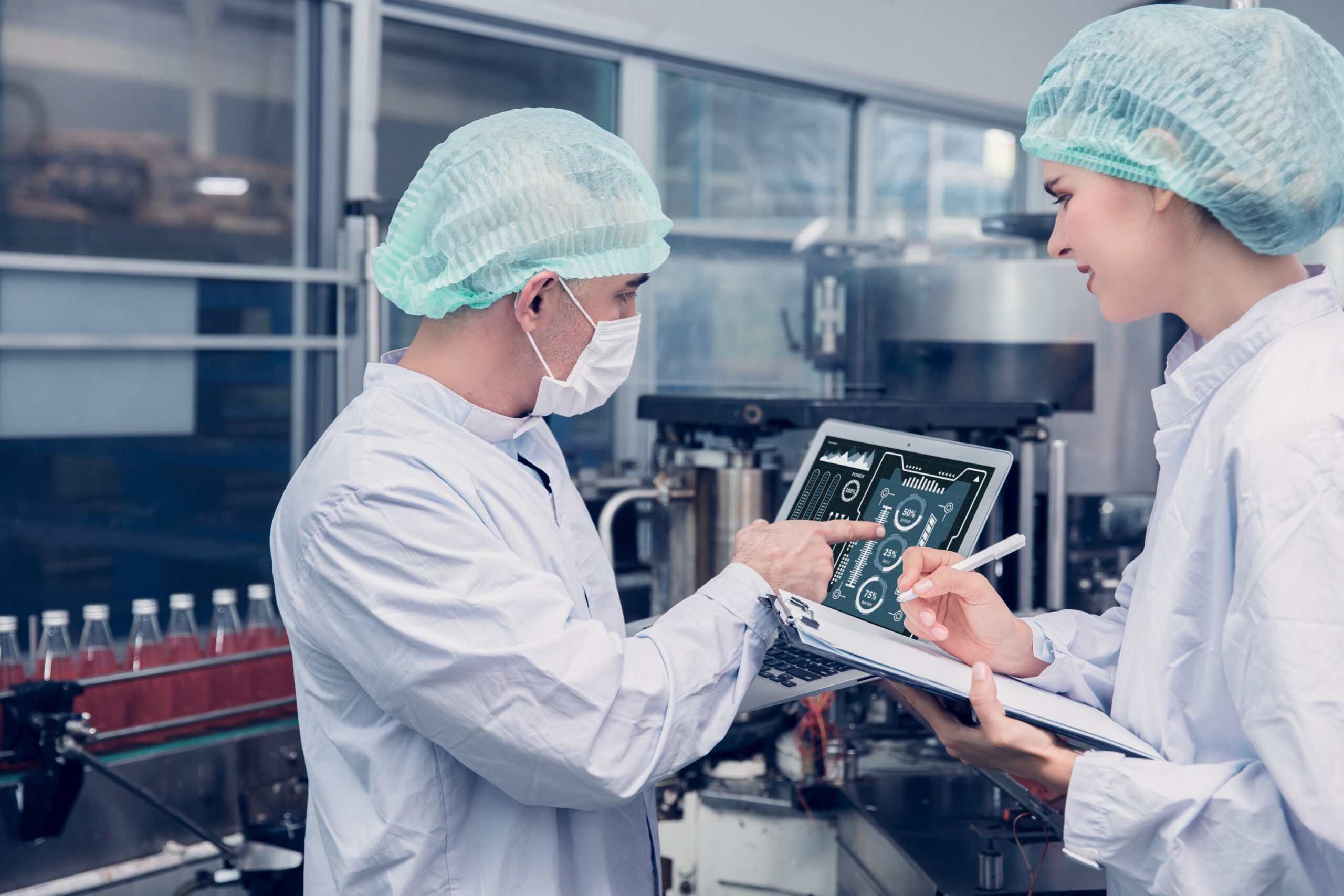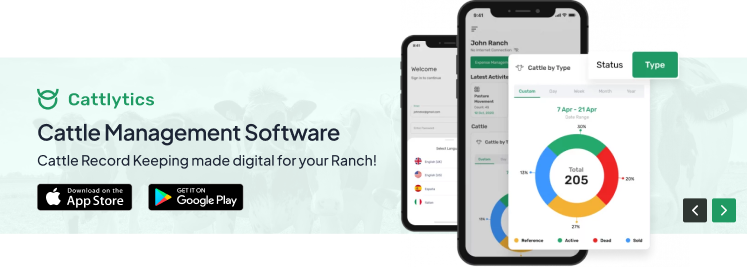In the early stages of managing a business, the operations are usually simple, with not many transactions taking place. The operations and finances can be easily managed through spreadsheets manually. However, as the business grows, it becomes more complex and difficult to manage manually.
This is especially true for food manufacturers who have to deal with various aspects such as ingredients, recipes, production processes, inventory management, sales, and distribution.
Food manufacturers turn to a food ERP system to manage their growing business. However, with so many options available in the market, choosing the right ERP system can be quite overwhelming.
To make things easier, we have compiled a list of the top 5 food ERP systems expected to dominate the market in 2024.
How to Choose an ERP for Food Manufacturers
Before choosing which ERP system will work best for your food manufacturing business, it is important that you know a few major components that the Food ERP system must have in order to facilitate your business operations.
Food Safety and Compliance
Over the past few years, the food industry has become subject to strict regulations and industry standards. Therefore, it is essential that the ERP system you choose has a food safety and compliance feature.
Regulations such as the Food Safety Modernization Act (FSMA), Global Food Safety Initiative (GFSI), and Hazard Analysis Critical Control Point (HACCP) set the standards for food safety practices.
A food ERP system that integrates food safety principles can help your business comply with food safety regulations. This feature can also help track and trace ingredients, ensuring that only safe and compliant products are being produced.
Production Planning and Scheduling
Food manufacturers have a production schedule that contains all details about the process, including ingredients, quantities, recipes, and production timelines.
A food ERP system with a production planning and scheduling feature can help optimize this process by providing real-time data on material availability, inventory levels, and production progress. Additionally, leveraging Microsoft 365 services can enhance collaboration and streamline communication across all departments, ensuring everyone stays informed and coordinated. This can keep all the stakeholders well informed about the production status, and they can take timely actions in case there is a fluctuation in supply/demand. A strong production planning and scheduling feature can minimize both cost and slack time.
Inventory Management
Efficient inventory management is the backbone of any successful food manufacturing operation. This encompasses not only knowing how much stock you have but also where it is located and how long it has been there. An effective food ERP system integrates batch/lot tracking and warehouse management capabilities to facilitate these needs.
Batch or lot tracking is an important component of food manufacturing. It enables the precise tracking of each ingredient from its source to the final product and the end consumer.
This traceability is essential for complying with food safety regulations and efficiently managing recalls in case they arise. It also plays a significant role in quality control, ensuring that only the freshest, safest ingredients are used in production.
Top 5 Food ERP Systems for 2024
1. BatchMaster

Why Did We Pick It?
BatchMaster is a comprehensive enterprise resource planning solution designed to meet the needs of food manufacturers. It takes into account all aspects of business functions, including manufacturing, purchasing, inventory distribution, finance, sales, HR, etc, and provides real-time data to the stakeholders. The ERP system makes sure that the quality of products manufactured is not compromised at any stage.
Unlike other food ERP systems that might rely on external consultants, BatchMaster ensures seamless integration and ongoing support for its ERP application directly on the customers’ local server or cloud.
Main Features
- Labeling and Traceability: Uses nutritional labeling features to meet all labeling and traceability regulations and generate FDA reports.
- Batch Scheduling: This feature enables users to create, modify, save, and view the production schedule and resize batches during a shortage of raw material.
- Inventory Management: Provides accurate inventory information in real-time and tracks inventory using different approaches like FIFO, LIFO, and FEFO.
Benefits of Using BatchMaster
- Real-time Data Access: BatchMaster provides real-time data to the stakeholders, enabling them to make timely and informed decisions.
- Sales Forecasting: The ERP system assists in planning and forecasting production based on sales orders, which helps minimize excess inventory and stockouts.
- Improve Operational Efficiency: BatchMaster streamlines all business processes and automates many routine tasks, improving operational efficiency.
2. Folio3 Agtech Food ERP System

Why Did We Pick It?
Folio3 AgTech Food ERP System is designed for food service establishments, producers, processors, packers, and retailers. It offers a quick and scalable solution that enables businesses to easily digitize their food management processes.
By integrating comprehensive traceability throughout the supply chain, the ERP ensures that businesses can effortlessly track and monitor the lifecycle of their products – from raw materials to finished goods. This helps mitigate the risks associated with food recalls and manage such events efficiently if they arise.
Additionally, Folio3 helps food businesses comply with stringent industry regulations, including the FSMA and GFSI standards, by automating compliance processes. The ERP system provides automated HACCP plans and templates to track all food safety tasks in real time, ensuring that food safety practices are maintained at every stage of the production and distribution process.
Main Features
- Automated HACCP Plans: This ERP system provides a range of premade templates and checklists to ensure FSIS, HACCP, and BRC compliance with instant alerts.
- Real-time Monitoring and Alert System: This system enhances the ability to constantly monitor food safety tasks and receive instant alerts for non-compliance.
- AI-Powered Tools: Helps organize daily tasks and streamline record-keeping for quick food safety audits.
- Data Analytics & Reporting: Provides advanced data analytics and reporting tools, enabling businesses to gain actionable insights from their food manufacturing data and optimize their decisions.
Benefits of Using Folio3 AgTech:
- Simplify Compliance and Enhance Quality Control: The software’s AI-driven mechanisms boost the productivity of QC teams and simplify compliance.
- Digitization and Time-saving: Teams can save up to 30% more time on food safety tasks, ensuring operations are 100% audit-ready.
- Empowerment through Analytics: Provides supervisors with a real-time analytics dashboard to empower decisions and enhance operational consistency.
- Improved Collaboration with Team: Enhances collaboration within business teams by providing centralized data access, communication tools, and task management features.
3. Deacom

Why Did We Pick It?
Unlike typical food ERP systems, Deacom is engineered with the unique complexities of the food and beverage manufacturing process in mind. This holistic ERP solution integrates core functionalities such as accounting, inventory management, and the general ledger with specific important features for this industry. This includes production management, formulation, quality control, full lot traceability, and warehouse management.
This comprehensive approach negates the need for additional software or third-party integrations, streamlining operations and enhancing profitability.
Main Features
- All-in-One Solution: A unified ERP system designed specifically for food manufacturers, eliminating the need for external software.
- Full Lot Traceability: Offers extensive tracking capabilities for complete visibility and control over material and finished product lots.
- Multi-Facility Support: Seamlessly manages transactions and operations across multiple manufacturing sites and facilities with a single ERP solution.
Benefits of Using Deacom
- Manage Catch-Weight Items: Deacom’s food ERP system provides accurate management of catch-weight items, reducing errors and increasing efficiency.
- Facilitate intercompany inventory transfers: Facilitate hassle-free transfers of inventory between multiple facilities, ensuring smoother operations.
- Increased Food Safety and Compliance: Deacom helps manufacturers meet stringent regulatory standards and improves product safety and traceability across the supply chain.
4. Aptean Food & Beverage ERP

Why Did We Pick It?
Aptean Food & Beverage ERP Enterprise Edition is known for its capability to address the unique challenges faced by large-scale food production, manufacturing, or distribution operations.
With future-proof, global system features designed for a wide array of food and beverage sub-vertical segments, it stands out as a comprehensive solution for enterprises aiming to maximize profitability and productivity.
Main Features
- Global Future-Proof System: Designed to cater to the end-to-end business processes of various food and beverage segments worldwide.
- Comprehensive Cost Understanding: Offers detailed insights into both direct and indirect costs, including raw materials, production, labor, and more.
- Automated Data Entry: Modern technology allows data to be read directly from the equipment without manual work. This can be integrated into Aptean’s ERP system, enabling businesses to maintain a competitive edge.
Benefits of Using Aptean Food & Beverage ERP
- Increased Customer Satisfaction: Features like sales order processing, trading modules, and proof of delivery functionality ensure customer orders are fulfilled accurately and on time.
- Always Up-to-Date: The unique software architecture ensures your system remains current with continuous updates, reducing upgrade costs and operational disruptions.
5. Sage X3

Why Did We Pick It?
Sage X3 is a comprehensive solution that ensures food quality and safety in the food and beverage industry. Its design specifically caters to this sector’s complexities and demands, focusing on compliance, recipe management, quality control, and lot tracking. These features help businesses stay competitive and adhere to mandatory regulatory standards.
Businesses can customize Sage X3 solutions as per their business needs. The system also offers features to operate globally in different languages, currencies, and legislations. By getting access to real-time data, the software allows stakeholders to get clear picture of their manufacturing operations and forecast sales.
Main Features
- Recipe Management: Ensures precise formulation control, which is critical for maintaining product consistency and quality.
- Quality Control: Implements rigorous quality checks to guarantee food safety and compliance with industry standards.
- Lot Tracking: Offers advanced traceability features to manage and trace the lifecycle of products seamlessly.
Benefits of Using Sage X3
- Operational Excellence: Streamlines operations with effective recipe management and compliance strategies, ensuring efficient production processes.
- Supply Chain Optimization: Enhances the supply chain through integrated management tools, minimizing waste and maximizing product freshness.
Real-world Example of How Our Customers Drive Success Using Folio3 AgTech ERP
At Folio3 AgTech, our team of ag experts is always busy helping our clients devise strategies to improve their business operations and make them more efficient and profitable. One of our clients, Superior Farms, North America’s largest lamb processor, needed a solution to integrate their siloed data and improve their operational efficiency.
When they approached us, they were facing several challenges in tracking and managing their company’s resources. From animal welfare to product packaging and selling, all data was manually processed in different fragmented systems.
To overcome these challenges, Folio3 proposed an ERP system powered by Microsoft Dynamics 365. By integrating all major business processes, from meat slaughtering to packing and distribution, we helped the business enhance its operational efficiency.
Following were some of the features of the ERP system we implemented for Superior Farms:
- Master Planning: Facilitated planning and scheduling of all resources and helped the business optimize meat cuts and recipes based on sales demand.
- Meat Production: Designed a ‘production app’ to access orders and enabled package labeling and identification numbers for each product.
- Dispatch & Shipments: The ERP solution had a native warehousing app that used scan guns and offered offline support for sales shipments
Conclusion
Overall, as food manufacturing businesses scale up, their operations become more complex. To manage these operations effectively without making errors and violating food safety standards, businesses need to decide which food ERP system best aligns with their needs and requirements.
The blog has highlighted the important features you need to check when selecting the food ERP system for your business. If you are still unsure about making the right decision, reach out to our team at Folio3 AgTech, and we will help you choose the best ERP system for your food manufacturing business. With the right food ERP solution in place, companies can streamline operations, ensure compliance with regulations, and drive success and profitability.
FAQs
Why is ERP Important in the Food Industry?
ERP system helps food businesses manage complex operations and comply with the stringent regulations to maintain food safety. With real-time data analysis and inventory tracking, ERP solutions enable enterprises to streamline processes and make informed decisions.
What Does ERP Mean in Restaurants?
In the restaurant industry, ERP refers to a software system that integrates different business functions, such as inventory management, sales and marketing, accounting, etc. It helps restaurants streamline operations and make data-driven decisions for better efficiency and profitability.







